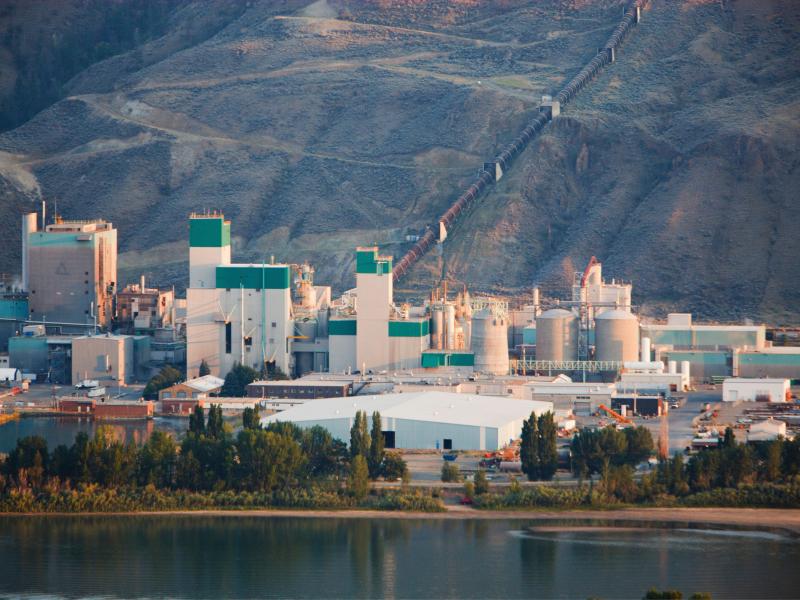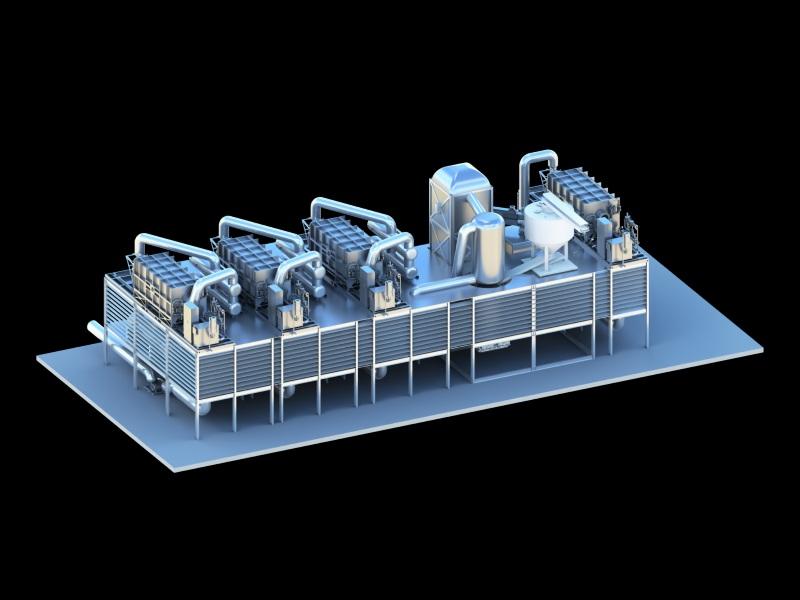Recent Articles
Next Hydrogen secures new funding, aims for TSX listing
Next Hydrogen secures new funding, aims for TSX listing
Mississauga-based Next Hydrogen oversubscribed on its latest round of private equity financing, and is moving forward with its plan to list on the Toronto Stock Exchange. The firm has multiple patents for its redesigned alkaline electrolysers, which create green hydrogen.
Alberta’s Carbonova makes carbon nano-fibre from CO2
Mina Zarabian, CEO of Carbonova Corp, which she co-founded with Pedro Pereira Almao, have hit upon a way to use carbon dioxide to construct carbon nanofibres — a multi-purpose material that is lighter, stronger and more flexible than steel.
Post-secondary schools testing ground for sustainability
Canadian colleges and universities are starting to dream big about sustainability. Curriculum renewal, low-carbon buildings, fossil fuel divestment and increased multi-institution collaboration top a growing list of commitments by Canadian post-secondary institutions. However, is it enough given the climate emergency?
B.C’s investment fund commits $5B to green bonds
• Globe and Mail • Canada Newswire
British Columbia Investment Management Corp. will commit $5 billion to sustainability bonds and cut carbon exposure in its stock-market holdings by a third by 2025 in the latest move by a major investor to deal with the financial risks of climate change.
RMI’s district-level pathways support carbon-neutrality
The Rocky Mountain Institute (RMI)’s report titled “Zero-Carbon Targeted Integrated Energy Planning: An Innovative District-level Pathway to Support Carbon-Neutrality by 2060” proposes theoretical frameworks, methodologies and application scenarios for district-level urban planning for development zones with zero-carbon goals.
The Texas grid is the latest too-big-to-fail story
• Microgrid Knowledge • CS Monitor
Blame is being assigned at warp speed for the massive power outages in Texas, but the most basic danger isn’t being discussed: Big grids by their nature are prone to big failures despite the benefit of delivering power to many people.
Texas freeze led to release of tonnes of air pollutants
• CBC
The largest U.S. oil refiners released tonnes of air pollutants into the skies over Texas last week, according to figures provided to the state, as one environmental crisis triggered another as refiners and petrochemical plants scrambled to shut production.
Ceres joins U.S. partners to launch America Is All In
• CERES • Environmental Leader
As the U.S. formally rejoins the Paris Agreement, Ceres joined other organizations across the U.S. in launching America Is All In, a new network of U.S. communities, businesses and institutions committed to upholding the federal government’s commitment to climate action.
Ramping up adoption of zero-emission freight vehicles
• Pembina Institute • Forbes • Washington Post
The move away from the internal combustion engine has kicked into even higher gear with the Biden Administration’s move to electrify the U.S. government’s fleet and General Motors’ announced phase-out of gas and diesel engines by 2035.
Setting a course to Canada’s clean hydrogen economy
• Pembina Institute • Pembina Institute
The climate benefits of hydrogen are highly dependent on how it is produced. The carbon intensity associated with hydrogen ranges from extremely low when it’s made with renewable electricity to very high when it’s derived from fossil fuels.
Port Hawkesbury Paper proposes largest N.S. wind farm
• CBC
Port Hawkesbury Paper is developing a wind farm project that could be the largest in Nova Scotia. Development of the project started three years ago and the current plan is to install 28 towers that could each support a four-megawatt turbine.
Passivhaus Challenge shows how buildings hold heat
According to architect Mark Siddall, the Passivhaus Challenge – to see how long people who live in Passivhaus or EnerPhit (the standard for renovations) could go without turning on their heat – was a spur of the moment idea.
Battle to save Montreal’s suburban forests heats up
From the Fairview Forest in Pointe-Claire to a wooded lot in Pierrefonds-Roxboro, the battle to preserve green spaces is heating up in the West Island. The question period in Pointe-Claire was dominated by citizen queries about preserving the Fairview forest.
Quebec sets environmental criteria for municipal tenders
Quebec’s Legault government implementing legislation to facilitate the inclusion of environmental criteria in municipal calls for tenders is touted as a way to make public contracts greener that will also give Quebec companies a boost the awarding public contracts.
Meta-study ties ESG to corporate success
Corporate boards must be revamped for ESG era
A dramatic shift in cultural norms and a growing list of intergenerational risks, such as climate change and income inequality, demand the attention of corporate directors – yet Canadian boards are trapped in the past, according to a substantive new paper.
Scientist warns about pollution from new coal mines
Alberta is planning a public consultation on coal-mining after it backtracked on a decision to revoke a policy that had protected the mountains and foothills since 1976. Experts on pollution from coal mines have issued warnings about expanding the industry.
Western winter storms cause $134M insured damage
• Canada Newswire • Calgary Herald
Two January winter storms in Western Canada caused over $134 million in insured damage. The Jan. 12-14 winter storm brought intense winds across B.C., Alberta and Saskatchewan. The Jan. 19-20 snow squalls in Alberta recorded a wind gust of 193 km/h west of Calgary.
1,000 renewable powered microgrids planned in Australia
Western Australia’s Labor Party has announced plans to both build and install 1,000 standalone power systems – or SAPS – including solar, battery storage and hydrogen electrolysers across its grid over the coming five years, a $259 million policy package to boost green manufacturing.
NZM launches 100% regenerative wool platform
The New Zealand Merino Company (NZM) and global Merino wool apparel and footwear brands Allbirds, icebreaker and Smartwool have joined forces with 167 sheep growers to create the world’s first regenerative wool platform — representing 2.4 million acres in New Zealand.
 |
Sponsored by Making the case for building to zero carbon |
CaGBC’s Making the Case for Building to Zero Carbon report, a first of its kind in Canada, demonstrates that zero carbon buildings provide a positive financial return over a 25-year life-cycle inclusive of carbon pollution pricing, and require only a modest capital cost premium.
 Industry Events
Industry Events
-
ECO IMPACT 2026
Feb 19 2026
to Feb 20 2026
The Westin Calgary
-
BuildGreen Atlantic
Apr 27 2026
to Apr 28 2026
Halifax, NS
-
The Evergreen Conference
May 06 2026
to May 07 2026
Toronto, ON
-
Building Lasting Change
Jun 17 2026
to Jun 19 2026
Montréal, QC
-
Retrofit Canada Conference
Jun 24 2026
to Jun 25 2026
Halifax Convention Center











